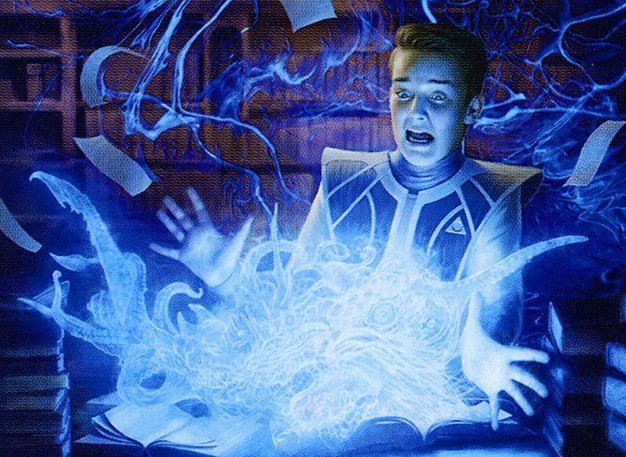Magical Miscasts
In some settings, magic might be abrasive and dangerous. In other settings, it may be upbeat and whimsical. A great way to accomplish your desired "feeling" when it comes to magic while also adding a little more complexity to Spellcasting is to employ Magical Miscasts. The following mechanics are intended as a Variant Rule that your group may choose to use, not the standard way magic should be treated in all Dungeon! campaigns.
Spellcasting with a Catch
To employ Magical Miscasts, you will need to add some kind of fail-state to Casting, which is not built into Dungeon! naturally. You can simulate this through simple percentage chances, using d20 rolls, d100 rolls, etc. Alternatively, you may use Skill Checks, giving players more influence over their chances. This is the recommended approach, as having no influence over a Spell's chance to backfire is usually not an enjoyable experience.
Spellcasting as a Skill
I suggest that you employ the concept of a Magic Skill. Whenever a target would Cast a Spell, they must roll a Magic Skill Check. If they succeed, the Spell is cast normally. If they fail, however, roll 2d6 on the Miscast table below.
|
2 |
The Spell grows uncontrollable, harming the Caster. The Caster fails to Cast the Spell, wastes the Spell Point, and takes a number of d6's of Damage equal to their Level. |
|
3 |
The Spell betrays the Caster. The Spell is Cast, but its target is inversed (i.e. a Healing Spell targets an enemy, a Damage Spell targets an ally, etc.). |
|
4 |
The Spell becomes weaker. The Spell is Cast, but its effect (i.e. Damage dealt, Healing provided, Duration, etc.) is halved. |
|
5 |
The Spell fizzles out. The Caster fails to Cast the Spell and wastes the Spell Point. |
|
6, 7, 8 | The Spell begins to fizzle out. The Caster may choose to take 1d6 Damage. If they do, the Spell is Cast. If they do not, they fail to Cast the Spell and waste the Spell Point. |
|
9 |
The Spell draws power from the Caster's surroundings instead of the Caster themselves. The Spell is Cast and the Caster retains the Spell Point used. |
|
10 |
The Spell grows more powerful, at the expense of the Caster. The Spell is Cast, but its effect (i.e. Damage dealt, Healing provided, Duration, etc.) is doubled. However, the Caster becomes Exhausted (see Wilderness Travel). |
|
11 |
The Spell repeats, at the expense of the Caster. The Spell is Cast, but it is instead Cast twice. However, the Caster becomes Exhausted (see Wilderness Travel). |
|
12 |
The Spell's raw power awakens something within the Caster. The Spell is Cast, and the Caster gains a permanent Ability of some kind. This Ability should be both a blessing and a curse, and it should fit both the setting and the type/source of magic practiced by the Caster. Some examples can be seen below.
|

No comments:
Post a Comment